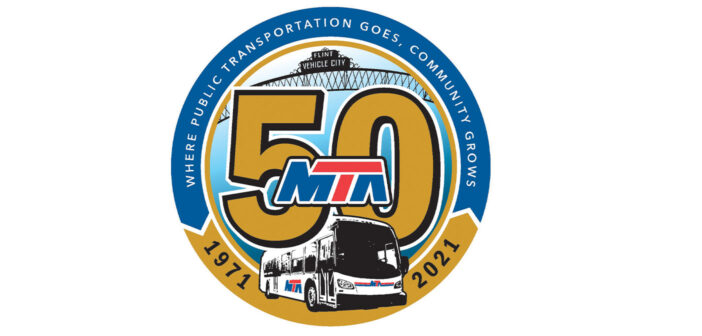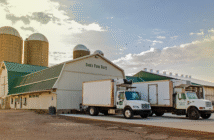Formed in 1971, the Flint Mass Transportation Authority (MTA) has celebrated 50 years!
According to MTA General Manager Edgar Benning, a formal celebration planned for 2021 was postponed due to the pandemic. The long-awaited 50th Anniversary Gala will take place on May 20 in Downtown Flint at the Riverfront Conference Center to recognize the achievements of one of the nation’s top public transportation fleets. Here are some highlights of the MTA’s first 50 years:
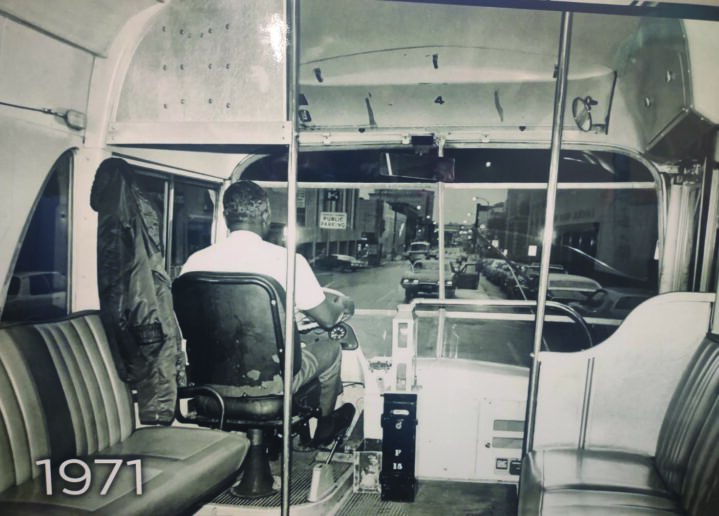 1971 After Flint City Coach shut down in 1970, city leaders developed a transportation plan and formed the MTA, which operated out of a bus garage at Saginaw and 12th Streets. Service to the City of Flint started with a fleet of 26 buses running hourly on 12 routes.
1971 After Flint City Coach shut down in 1970, city leaders developed a transportation plan and formed the MTA, which operated out of a bus garage at Saginaw and 12th Streets. Service to the City of Flint started with a fleet of 26 buses running hourly on 12 routes.
1976 The North Dort Highway facility was constructed. According to Benning, the 17-acre site was developed to include a headquarters for administration and operations. It is also an Amtrak center. “You could take a train or ride the bus from that terminal,” Benning says.
1985 Robert J. Foy was appointed MTA General Manager. He remained in the position until 2010 when Benning was named the new GM.
1989 The new Downtown Transportation Center was built on the former site of Uncle Bob’s Diner (Wallenberg and Harrison Streets). “This was very significant,” Benning reports. “Before it was built, people had to stand outdoors to wait for the bus and this allowed riders to wait indoors. It also provided better access to all vehicles coming into one central area.”
1990 A trackless trolley route was established in partnership with Windmill Place on 5th Avenue to shuttle residents to work and workers to a place for lunch.
The MTA Board of Directors was restructured, expanding from a nine-member board to eleven members. “It brought additional representation,” Benning reports, “from small cities, township associations, the disabled community and business and education communities. It was restructured to better serve those in need.”
1996 The first MTA millage was approved. According to Benning, MTA requested that a county-wide, expanded Your Ride service be placed on the ballot to provide additional routes. “It was approved by 78 percent,” Benning notes.
1997 The second millage was approved. “The community wanted more service. The Board of Directors asked to go for a higher-level millage to meet that demand,” Benning states.
1997 Transportation expanded to include Regional Service to Livingston, Oakland, Lapeer and Saginaw Counties. “This was the first time we were able to reach out to other counties,” Benning says, “to provide job opportunities outside of this area and bring people here for employment. We still provide this service today.”
1998 A $10 million renovation of a bus storage and maintenance facility on Dort Highway began to house 221 buses and 100 vans.
Construction also began on the 53,000 square-foot Administration & Training Facility at the N. Dort Highway property and a facility to accommodate 321 vehicles.
Inter-local agreements were established with Washtenaw, Oakland, Saginaw Livingston and Lapeer Counties to connect regional transportation services.
2003 Construction began on the Grand Blanc and Mt. Morris Your Ride Service Centers.
2004 MTA expanded primary route service time to 11:30pm; a significant change as service previously ended at 6:30pm.
2006 Construction began on the Fenton Your Ride Service Center.
2008 Construction began on the Swartz Creek Your Ride Service Center.
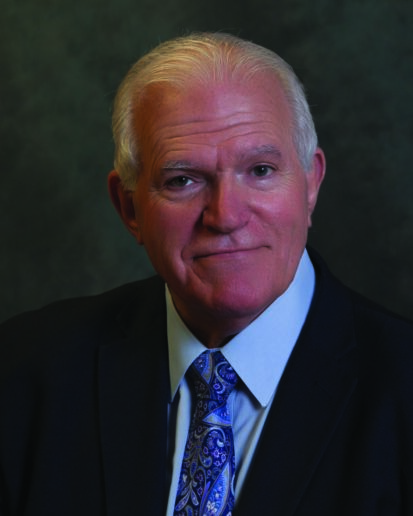 2011 Edgar Benning was appointed MTA General Manager. An employee of the MTA since 1980, Benning brought much experience to the position having held various titles, including Assistant Superintendent of Bus Operations, Superintendent of Bus Operations and Director of Customer Service. In 2001, he became Assistant GM and Chief of Staff in 2009, running human resources and other departments. “I did a little bit of everything,” he says. Prior to his time at MTA, he was Vice President of Assembly for American Sunroof Corp., overseeing six plants.
2011 Edgar Benning was appointed MTA General Manager. An employee of the MTA since 1980, Benning brought much experience to the position having held various titles, including Assistant Superintendent of Bus Operations, Superintendent of Bus Operations and Director of Customer Service. In 2001, he became Assistant GM and Chief of Staff in 2009, running human resources and other departments. “I did a little bit of everything,” he says. Prior to his time at MTA, he was Vice President of Assembly for American Sunroof Corp., overseeing six plants.
2012 Construction began in Grand Blanc on a storage and maintenance facility for a hydrogen and compressed natural gas bus. “It was significant to bring the first hydrogen fuel cell to the community,” the General Manager reports. “Flint MTA became the biggest user of alternative fuel in the Midwest, utilizing propane, hydrogen and compressed natural gas.”
“Public transportation is the fabric of the quality of life, so much more than people ever anticipated.”
Ed Benning
2014 A hydrogen bus was purchased from the Center for Transportation and the Environment. The hydrogen bus is unique as it creates electricity to power the electric motor. It is very sustainable, reusable, well-tested and proven that it works.
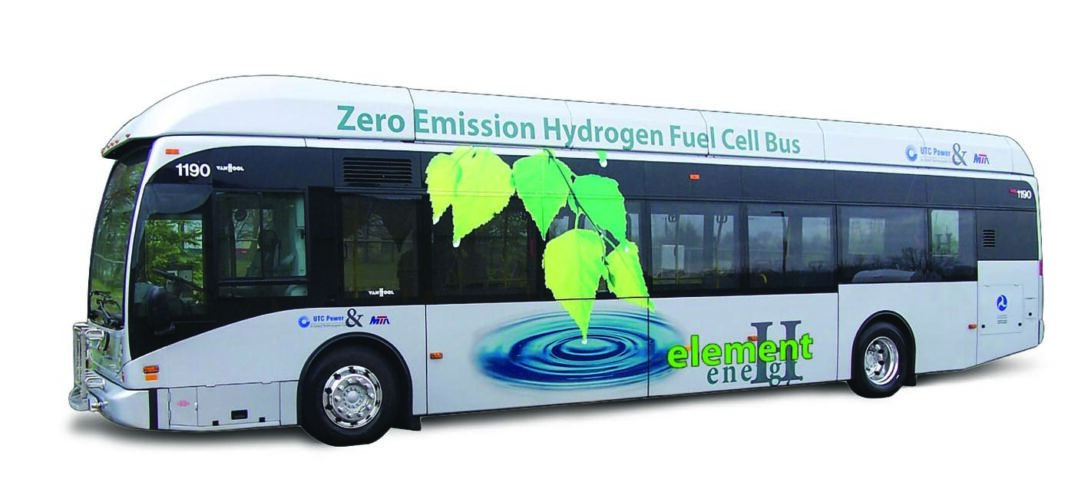
2015 Construction began on a new Compressed Natural Gas (CNG) storage building at the Grand Blanc Alternative Fuel Facility.
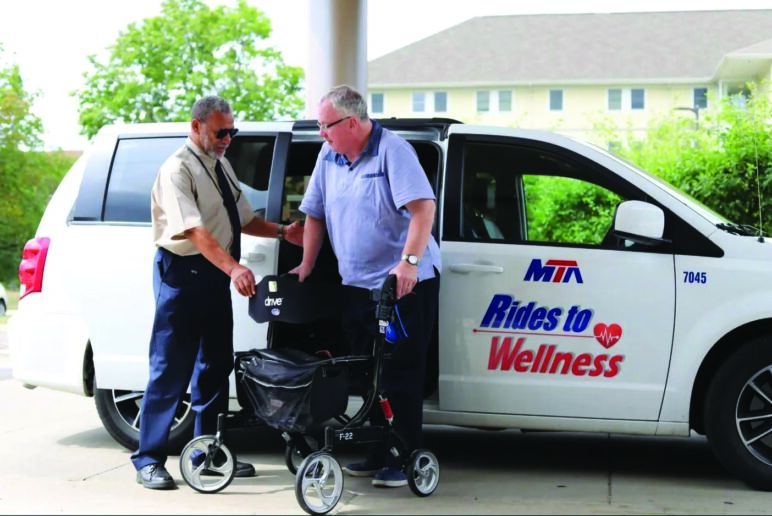 2016 Rides to Wellness/Same Day Service was introduced. “This became a national model,” Benning reports. “We have become the country’s No. 1 medical transportation provider. When people need it, we provide on-demand pick-up service within 30 minutes. Demand has grown significantly. Rides to Veterans is also growing, with free service being provided to veterans and their spouses for trips to the grocery store, pharmacy, doctor visits, etc.”
2016 Rides to Wellness/Same Day Service was introduced. “This became a national model,” Benning reports. “We have become the country’s No. 1 medical transportation provider. When people need it, we provide on-demand pick-up service within 30 minutes. Demand has grown significantly. Rides to Veterans is also growing, with free service being provided to veterans and their spouses for trips to the grocery store, pharmacy, doctor visits, etc.”
Rides to Groceries service launched, providing rides to local grocers and markets throughout Genesee County.
2017 New Compressed Natural Gas (CNG) and Fixed Route vehicles arrived utilizing funds from the second largest grant in the U.S. – $16 million to replace an aging fleet of 30-35-year-old buses. “They saw the good we were doing,” Benning states.
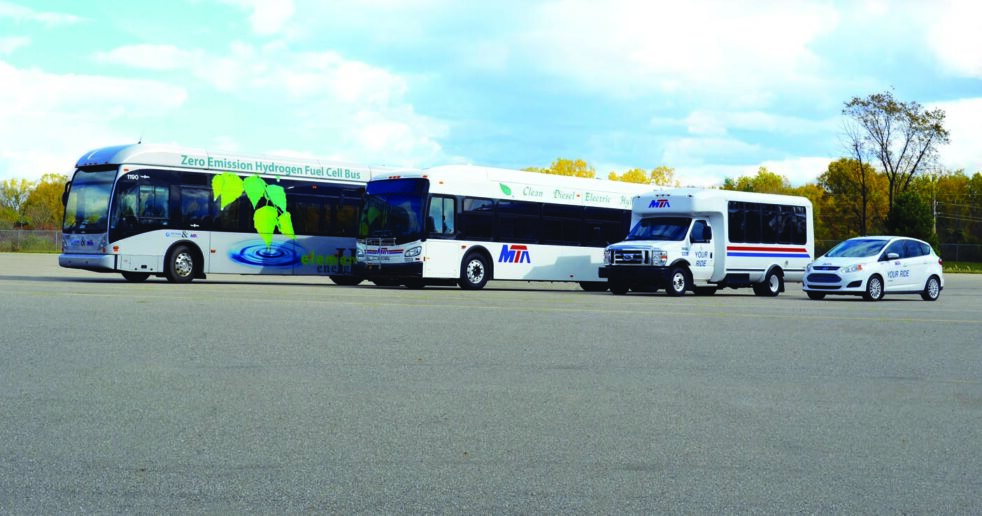
The MTA fleet is now over 300 vehicles. When it started, there were fewer than 50 employees and just 12 routes running in the City of Flint only.
2018 The MTA workforce had grown to 600 employees.
2019 MTA is named 2019 Urban Community Transportation System of the Year. “We were chosen from 3,500 systems in the country,” Benning reports.
2020 Construction began on an addition to the Grand Blanc bus storage facility, which was completed in 2021.
2021 MTA’s 50th Anniversary Celebration was delayed due to the pandemic.
Anticipated annual use of diesel fuel was down to 30,000 gallons (originally 2.3 million gallons). “This was very significant!” exclaims the GM. “We really helped clean up the community by going to alternative fuels.”
The MTA, Present Day The MTA fleet is now over 300 vehicles. When it started, there were fewer than 50 employees and just 12 routes running in the City of Flint only.
The Flint MTA plans to continue expanding its use of alternative fuel, especially hydrogen, says Benning. They have also joined a major group to become part of a hub for national production and are also starting to bring in more electric vehicles (cars).
MTA is developing new micro-transit and on-demand services to provide transportation when you need it. They are also developing and expediting micro-transit initiatives across the county.

MTA’s Stephanie Confer (“Stephanie K with the MTA”) provides an informative podcast with a new episode each week. You can listen to “On the Road with MTA” on Fridays on your podcast platform of choice.
The Future According to Benning, exciting things are in the works for the future of the MTA. They are working to develop a new regional service for Lapeer, Genesee and Shiawassee Counties which will provide seamless transportation to users without the need for transfers.
Currently, Benning is anticipating development of a “Bus on the Shoulder” program. This would allow buses to operate on the shoulder of the I-69 expressway during traffic backups. “MTA Buses would have the exclusive right to use the shoulder,” Benning states.
MTA is also preparing to launch a new card payment system, so that riders won’t have to carry cash. In addition, MTA hopes to attract a future workforce with educational opportunities available for those as young as eighth-grade students.
The General Manager is proud to have seen how MTA has grown and evolved over the years. “Over the past half-century, the MTA has transformed into a world-class transportation service considered by many as a model for the country,” Benning states. “Since the pandemic, our entire world has changed and we at the MTA are quickly adapting to better address the needs of the public today and into the future. We would like to thank community members for their great support over the years and we are committed to exceeding their expectations in the days ahead.”

